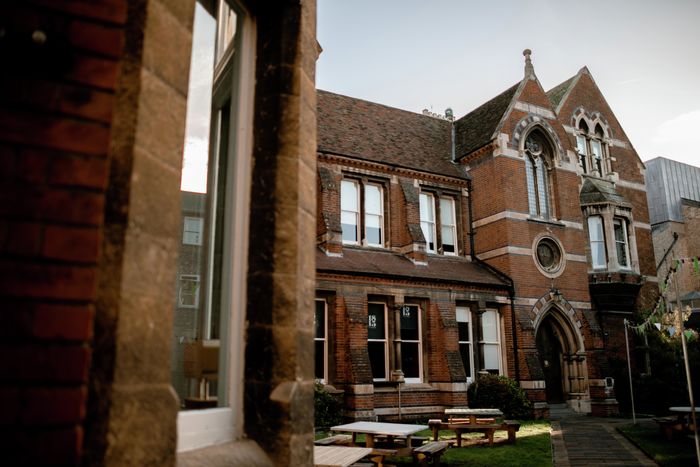Prosecco socialism?
Colleges should spend less ‘small’ money on free drink receptions, and more on the bigger things that really matter to students, argues Maddy Browne

There is a running joke in my family now about the amount of free wine we get at events here at Cambridge. In my first term, I gleefully informed them about all the wine receptions, and how, in proper student fashion, I was forcing myself to actually enjoy the stuff (because who wouldn’t want to take advantage of a bit of free booze?). All these institutions are so wealthy, after all – so why not go back for a second glass?
But there is a double standard obscured behind the shiny bottles of ‘unlimited’ prosecco. As Varsity reported in the latest print edition, Emmanuel College has been paying fifty members of staff below the living wage. Freedom of information requests from Harvey Brown, the SU Welfare Officer, revealed that staff members were being paid less than £10.42 per hour, and the excuses given by Emmanuel highlighted the attitude problem behind such blatant underpayments. If "all [their] permanent staff" receive the Real Living Wage or above, and supposedly the "only exceptions" are students working in the bar, then that points towards a damning devaluation of non-academic, casual or younger staff. Everyone who is working deserves the same basic dignity and pay-check, whether it is behind a bar or "permanent[ly]" behind a lectern.
"There is a double standard obscured behind the shiny bottles of ‘unlimited’ prosecco"
This is just the tip of an iceberg that appears to be a few million (or billion) pounds deep. Once you account for money tied up in assets, investments and contingent donations, there still appears to be a significant gap between what colleges could spend their money on, versus what they prefer to invest in. The difference feels performative, in the sense that colleges prioritise the ‘small’ money things, like flashy drinks receptions, deliberately vague ‘opportunity funds’, and welfare biscuits, while some JCRs have begun to create food banks for students in need. Chucking 200 quid at students in the form of travel grants seems trivial when considered in this manner. The unavoidable reality is that these funds consistently come at the detriment of the ‘big’ money things, like keeping rent low, maximising bursaries and ensuring redistribution of wealth between colleges.
Perhaps, if you added up all of the little things, there might be enough left in the bottom of the barrel for the things that, for students at least, matter infinitely more. Especially when it cannot be forgotten that the net worth of some colleges exceeds the GDP of entire countries.
"The net worth of some colleges exceeds the GDP of entire countries"
It's not that I don’t want the free wine. I’m a student – I’m not going to say no to free booze. It’s just that when student loans haven’t risen in line with inflation, and we are in a cost of living crisis, most of us have different priorities. I’d also quite like to spend at least one term of my degree in a room that isn’t infested with moths (lesson to all colleges: don’t install natural fibre carpet). And even after some accommodation is renovated and the pests removed, it shouldn’t immediately have to go up the rent bands either. Next year’s students at St John’s face a staggering 17% rent increase and these difficulties must be the same for postgraduate students – that is, if they can get accommodation in the first place.
We should also be able to trust that the people who are paid to serve us that wine are being treated with the dignity of a living wage, especially one that reflects Cambridge’s extortionate cost of living. On the one hand, students should have the opportunity to access miscellaneous funding to travel or support creative projects. Free events like matriculation do allow everyone to access glamorous halls and wine cellars. At the same time, students should also be able to comfortably pay their rent. We should all be able to trust that those who work outside of our supervisors’ offices are treated with the same respect. Our Oxbridge experience shouldn’t be shaped around what colleges decide is worth their money.
 News / SU reluctantly registers controversial women’s soc18 December 2025
News / SU reluctantly registers controversial women’s soc18 December 2025 Features / Should I stay or should I go? Cambridge students and alumni reflect on how their memories stay with them15 December 2025
Features / Should I stay or should I go? Cambridge students and alumni reflect on how their memories stay with them15 December 2025 News / Dons warn PM about Vet School closure16 December 2025
News / Dons warn PM about Vet School closure16 December 2025 News / Cambridge study finds students learn better with notes than AI13 December 2025
News / Cambridge study finds students learn better with notes than AI13 December 2025 News / Uni registers controversial new women’s society28 November 2025
News / Uni registers controversial new women’s society28 November 2025










